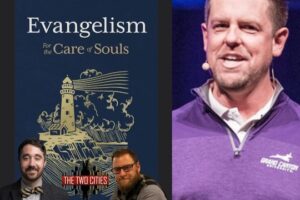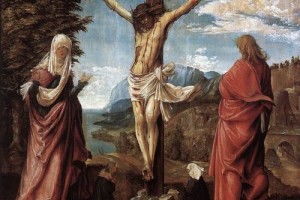“It may seem like a Cat Poster, but you must believe,” is one of my favorite quotes in The Lego Movie. In a crisis moment where the protagonist, Emmet, doesn’t know what to do and feels hopeless, his mentor, Vitruvius, tells him to believe, even though it may seem like a cliche from a Cat Poster. (And later in the movie, it turns out that it is actually written on a Cat Poster.) This quote is meant to bring inspiration and hope, but it is also self-aware of its own cheesiness. I love the way this movie mocks itself, which is one of the things that make it clever and witty. Not only is it well-written, riddled with a myriad of pop-culture references, but the animation is amazing. Since I grew up playing with Legos – having an older brother, and parents as engineers – I enjoyed watching the Legos come to life.
As I’ve been thinking more about the significance of this quote, I’ve also been reflecting on the importance of belief and the object of belief. In this movie, as in many underdog stories, the underlying moral of the story is to believe in oneself, and to believe in one’s own capabilities, and by doing so, one can overcome and gain the victory. While I do think this is true in many ways, especially in considering our own God-given gifts and abilities – to be able to recognize and utilize them, I also wonder how this moral, which is found in many movies affects our own views of being self-sufficient. Self-confidence and living in the fullness of who we are good things, but anything taken to an extreme can become negative. Living in a culture where self-sufficiency and self-esteem become so highly-valued, I wonder how this affects the way we relate to God in trying to doing things in our own capabilities, instead of relying on Him.
I thought about more about the word, “believe,” today as I listened to a sermon at church on John 3:1-19. Growing up in the church, John 3:16 was one of the first verses I ever memorized in AWANA as a Sparkie. I remember reciting – “For God so loved the world that He gave His only begotten Son, that whoever believes in Him should not perish but have everlasting life,” every week in unison with other red-vested clubbers as it was our theme-verse. Because of the familiarity of this verse, there is a temptation for me to ride this verse off as a cliche, and just think, “Oh, I already know this verse, I can just move on – been there, done that,” without really taking the time to truly contemplate the meaning of this verse, and how the truth of it still affects me today.
So, in an attempt to actually slow down and think more about this verse, I busted out my Greek New Testament and BDAG (being the seminary nerd that I am, even though I honestly haven’t looked at my Greek New Testament in two years). Looking at the placement of “love” at the beginning of the verse as the third word, there is an emphasis on the vastness of God’s love. He showed his love in sending His only begotten Son, and how He gave His Son for the world- is such a great demonstration of who God is and His love for the world. God is the One who takes initiative in salvation, and we are to respond to His love by believing in Him. This belief is not just of the mental assent of the mind, but a full faith and trust in Jesus. As good ol’ BDAG defines pisteo, “to entrust oneself to an entity in complete confidence, believe (in) trust, w. implication of total commitment to the one who is trusted. In our lit. God and Christ are objects of this type of faith that relies on their power and nearness to help, in addition to being convinced that their revelations or disclosures are true.” (BDAG, 817). Trusting in Christ is a full-fledged commitment of the whole person, not just a cognitive assent.
The power of believing and trusting someone or oneself is critical. While our culture values trust in oneself, the Christian life is not about trusting ourselves, but in believing and trusting in Christ – and those who believe in Christ have eternal life. This brings a change in the object of belief from ourselves to Christ. Since I’ve heard these words and truths many times, I sometimes think that I am past this basic stage of trust, and yet, as I think more about my own life, there are areas where I don’t trust God in trying to do things in my own power. In these areas, there is a deep belief that God is not loving and good, which is what causes me to work harder and strive in my own strength. In these places, I want to be open to God, in understanding His love in a deeper way to transform these places, so that my belief, trust, and faith in Christ will grow.





Leave a Reply
Your email is safe with us.